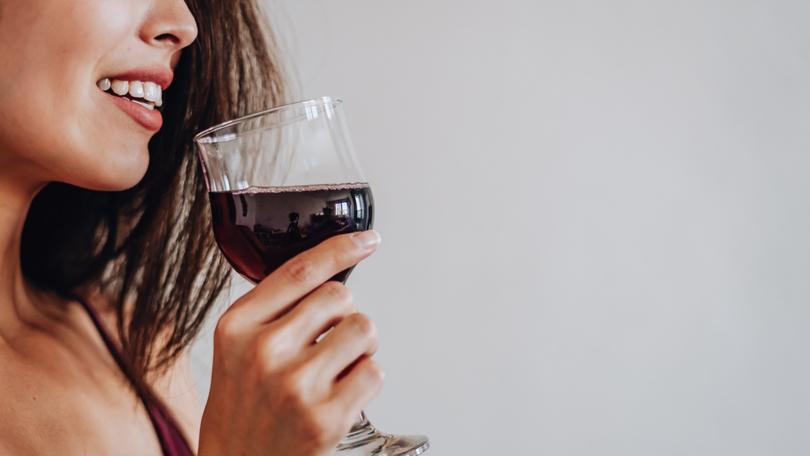Dr Max Pemberton: Working from home is causing an explosion in problem drinking, the effects of COVID continue
When your boss isn’t watching you, and you’re working at the kitchen table in sight of the wine rack, people get used to a post-work drink or three.

Many doctors, including myself, warned that the effects of banning us all from meeting and mingling would stretch out years into the future after COVID.
The whole pandemic nightmare seems a million years ago now. I think many of us have consciously tried to put it behind us and out of our minds.
But when you think back, it was an extraordinary and stressful time.
Sign up to The Nightly's newsletters.
Get the first look at the digital newspaper, curated daily stories and breaking headlines delivered to your inbox.
By continuing you agree to our Terms and Privacy Policy.Many people struggled mentally, and rates of drug and alcohol use soared.
I remember working in A&E in central London and seeing patient after patient come in with drug overdoses, many of them students who were stuck in halls, away from home, lonely and isolated.
For some it was the first time they had taken anything, and they were only experimenting because they were bored.
Others were regular users but had significantly increased their intake. But it wasn’t just students.
A toxic combination of office closures and long evenings of enforced isolation at home meant plenty of older people had the time and money to go to extremes.
And while many recovered and never touched an illegal drug or a bottle of vodka again, for some it triggered a more serious enduring addiction that might not otherwise have surfaced, meaning they now need long-term treatment.
Indeed, when the pandemic ended, I was astonished at the number of people in my clinics telling me that their drinking habits had spiralled out of control during lockdown and that they were now effectively alcoholics.
People who were just about managing found themselves in the grips of addiction, struggling to know what to do or how to stop.
In the early stages, they got used to pouring a glass of wine every night. Then – with no work the next morning to restrain the habit — that glass led to another one, and another, then a bottle.
Now what we’re seeing in addiction clinics and hospitals are the people who couldn’t put the brakes back on when lockdown ended.
Friends who work privately in mental health are being inundated with patients desperate for help.
Indeed, one colleague has had to resort to operating a waiting list, which he has closed because of demand.
In the service where I work, which caters for people with severe mental health problems, we still get referrals almost every week where lockdown is cited as an exacerbating factor or even the reason itself for a patient’s problem.
Alcohol misuse can be a slow burn, taking many years until people acknowledge its impact on their health.
I suspect the spike in deaths we are now seeing will be just the tip of the iceberg, as those who fell into addiction never manage to climb out of the quagmire.
People start drinking earlier in the day. Why not? If you end your day at 4pm instead of 6pm, who’s watching?
But there’s another problem here too. For lots of people, lockdown isn’t quite over. Of course, we can now go about our lives as before.
The days of social distancing, not sitting on park benches and queuing for groceries are a distant memory.
But the legacy of lockdown is a working-from-home culture which I believe is still fuelling a rise in substance misuse and alcoholism.
When your boss isn’t watching you, and you’re working at the kitchen table in sight of the wine rack, people get used to a post-work drink or three.
They don’t have to go to the pub and risk getting stuck with Brian from accounts, but can unwind on the sofa instead.
People start drinking earlier in the day. Why not? If you end your day at 4pm instead of 6pm, who’s watching?
Starting mid-afternoon means you’re more likely to glug an extra bottle too.
The frequency increases — instead of one or two drinks after work once or twice a week, patients tell me they drink daily.
If you don’t even have to get out of bed, but can log on in your pyjamas, does it matter if you have a hangover?
The reality of lockdown is that it opened a Pandora’s box, but then that box failed to close when the pandemic was over.
Instead, it was propped open by our refusal to go back to the office. It has shown us how people teetering on the edge of a problem with substances can fall headlong into it without the structure of working life.
Who knows when we will see the extent of the folly of lockdown?
To evaluate the human cost of this social experiment, I suspect we will have to wait for years.
What we do know is that unexpected, unpredictable and deeply troubling consequences for the health and wellbeing of the nation continue to reveal themselves.
Originally published on Daily Mail
